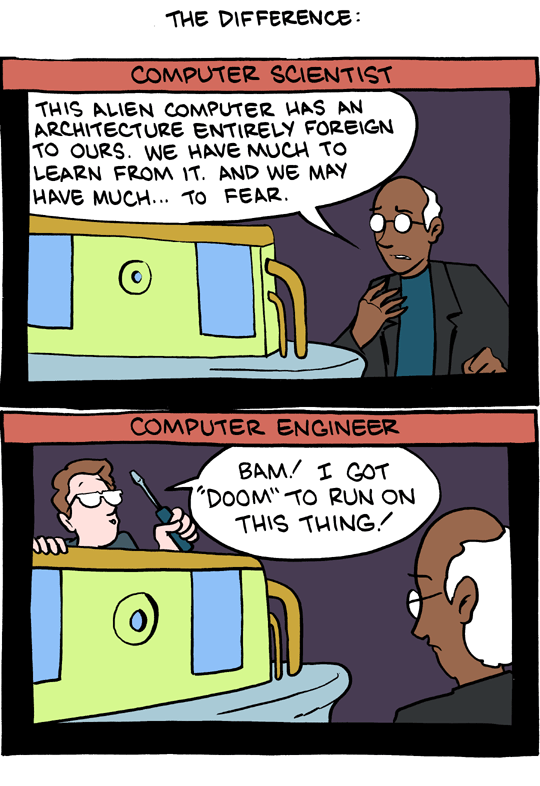“Computer science is what enables programming, but it is possible to do a lot of programming without understanding the computer science concepts underlying the process of computation. This isn’t always a bad thing. When we program we work at a much higher level of abstraction. When we drive a car, we only concern ourselves with two or three pedals, a gearshift and a steering wheel. You can safely operate a car without having any clear idea of how it works. However, if you want to operate a car at the very limits of what its capabilities, you need to know a lot more about automobiles than just the three pedals, gearshift and steering wheel.
